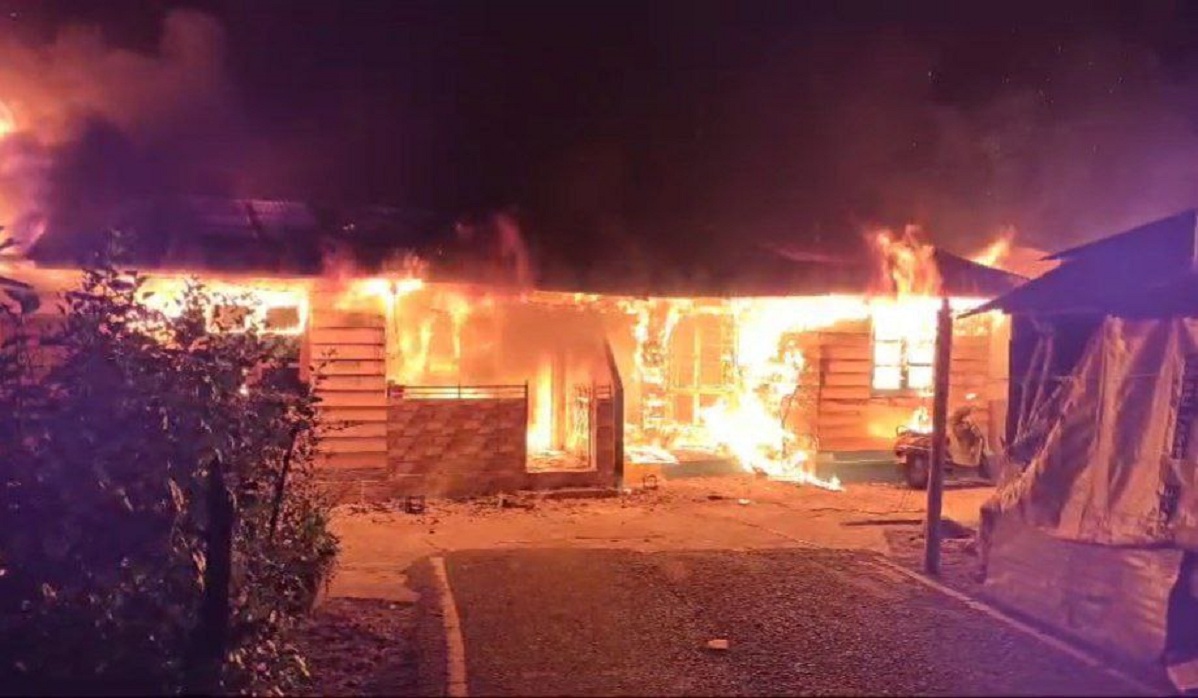Tarun Karthick
Sri Vijaya Puram, 27 January 2025
On the eve of the 76th Republic Day, a tragic fire engulfed two permanent tsunami shelters in Brookshabad, South Andaman, reducing them to ashes and leaving two families devastated as they lost all their belongings.
Nicobar Times visited the site on 26 January 2025 to speak with the affected families. However, the families could not confirm the cause of the fire.
The Indian Ocean Tsunami of 2004 displaced thousands of families across the Andaman and Nicobar Islands. Initially, these families were housed in temporary shelters made from corrugated roofing sheets, which were later replaced with permanent tsunami shelters.
While the permanent shelters were a step forward, they were constructed with a singular design across most areas. Each unit comprises two homes with wooden panels hooked to steel frames, thin plywood interior walls, corrugated sheet roofing, and electrical wiring running between the walls and through the roof.
The families in Brookshabad revealed they were allotted the shelters around 2008 or 2009. After 15 years, these units are showing signs of aging, especially the electrical wiring and wooden structures, which pose significant fire risks.
Adding to the problem, the allotment orders prevent residents from making any modifications or alterations to the shelters. A clause explicitly states:
“Beneficiaries shall not incorporate any alterations, modifications, or additions to the shelter structure.”
This restriction leaves residents unable to replace ageing wooden panels with safer, more durable materials or upgrade to modern and safer electrical systems which would need alterations. Attempts to use alternative materials like hollow blocks for repairs have reportedly been stopped by authorities, citing another clause that allows the administration to cancel allotments if terms and conditions are violated.
The Brookshabad fire is not an isolated incident but a symptom of a larger, systemic issue. Tsunami shelters across the islands—from Campbell Bay to South Andaman—face similar risks due to the restrictive allotment conditions and the aging infrastructure.
Without ownership rights, families feel reluctant to invest in the upkeep or modernization of the shelters, further compounding the problem. The use of combustible wooden panels, coupled with outdated wiring, makes these shelters highly vulnerable to fire and other hazards.
The administration must act swiftly to prevent future tragedies. Granting full ownership of the shelters to the occupants would empower them to make necessary modifications and invest in safety upgrades. At the very least, the government should amend the allotment clauses to allow residents to use alternative materials for repairs and modifications.
If these issues remain unaddressed, the Brookshabad fire will not be an isolated event but a recurring tragedy in tsunami shelters across the islands.
The time to act is now—before more families are left to rebuild their lives from the ashes yet again.

